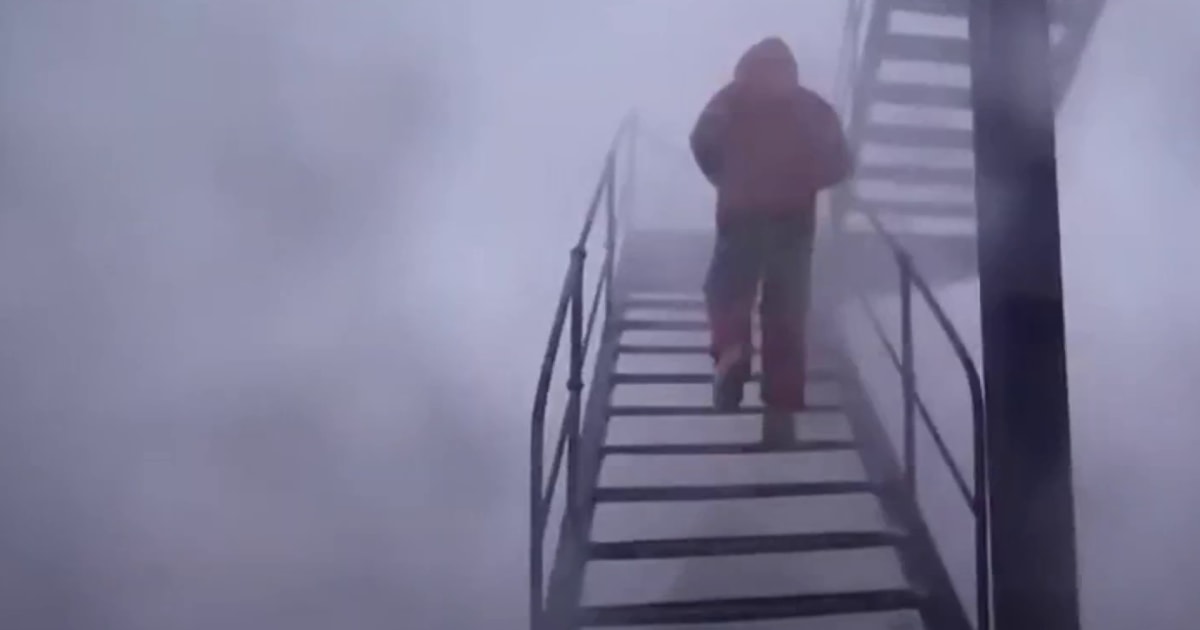Allegations Surface Against Antarctic Crew Member: Understanding the Controversy
In a shocking development, a crew member from a ten-person research team stationed in Antarctica is facing serious allegations of physical and sexual violence. This incident, which has stirred considerable concern, raises significant questions about the safety and conduct of individuals in such extreme environments. As investigations unfold, the situation prompts a broader discussion on the culture within isolated work settings, the psychological impact of prolonged confinement, and the implications for future expeditions to the frozen continent.
The Incident: What We Know So Far
Reports indicate that the allegations against the crew member emerged following a series of troubling incidents reported by fellow team members. These incidents, described by sources as both physical and sexual in nature, led to immediate action from the authorities overseeing the research station. The alleged victim has not been publicly identified, but sources close to the situation reveal that there was a pattern of behavior that created a toxic atmosphere within the team.
According to preliminary investigations, the accusations stem from several interactions within the close quarters of the Antarctic research station, where the team was engaged in vital climate research. Concerns were raised not only about the alleged violence but also about the overall environment that allowed such behavior to flourish. In isolated settings where team members depend on one another for both emotional and physical safety, such allegations can have devastating effects.
The Psychological Toll of Isolation
Working in Antarctica is not just a logistical challenge; it poses significant psychological hurdles. The extreme conditions, including harsh weather and extended periods of darkness, can affect mental health. Team members often face stressors that are compounded by the limited social interaction and reliance on a small group of individuals.
- Isolation: The remoteness of Antarctica means that crew members are cut off from the outside world, leading to feelings of loneliness and anxiety.
- Stress: The pressure to perform scientific duties amidst harsh conditions can exacerbate personal conflicts.
- Group Dynamics: Tensions can arise from personality clashes, leading to potentially harmful situations if not addressed proactively.
In light of this incident, it’s crucial to consider how organizations can better prepare teams for such extreme environments. Training programs that focus on conflict resolution, mental health awareness, and communication skills are essential to foster a culture of safety and respect.
Addressing the Culture of Silence
The allegations against the crew member reflect a larger issue within many isolated work environments: a culture of silence around inappropriate behavior. Often, individuals may feel powerless to report misconduct due to fear of retaliation or disbelief. In the case of the Antarctic crew, the small size of the team may have intensified these feelings, leaving potential victims feeling trapped.
Organizations must actively work to dismantle this culture of silence by implementing clear reporting procedures and ensuring that all team members understand their rights and avenues for support. Some effective strategies include:
- Anonymous Reporting Systems: Providing a safe way for individuals to report misconduct without fear of exposure.
- Regular Training: Conducting workshops to educate all crew members about harassment, consent, and appropriate behavior.
- Open Communication Channels: Encouraging discussions about experiences and concerns in a non-threatening environment.
The Role of Leadership in Ensuring Safety
Leadership plays a pivotal role in shaping the culture of any work environment, especially in isolated settings like Antarctica. Effective leaders must prioritize the well-being of their team and foster an atmosphere where all members feel safe and respected. This involves not only addressing current allegations but also proactively preventing future incidents.
Some key responsibilities of leadership include:
- Modeling Appropriate Behavior: Leaders should exemplify the standards they expect from their team, promoting respectful interactions.
- Supporting Victims: Providing resources and support for individuals who come forward with allegations, ensuring they are taken seriously.
- Creating a Transparent Environment: Regularly reviewing policies and practices related to misconduct and making necessary adjustments based on feedback from the team.
Implications for Future Expeditions
The unfolding controversy surrounding the Antarctic crew member will likely have far-reaching implications for future expeditions. As organizations assess their policies and training regarding conduct in isolated environments, it is crucial to learn from this incident. The following considerations may shape the future of Antarctic expeditions:
- Enhanced Screening Processes: Greater emphasis on psychological evaluations during the selection of crew members could help identify individuals who may be ill-suited for the stresses of isolation.
- Improved Support Systems: Establishing mental health support and counseling services readily available to crew members can help mitigate the psychological toll of isolation.
- Regular Assessments: Conducting routine evaluations of team dynamics and mental health can identify issues before they escalate into serious problems.
Conclusion: A Call for Change
The allegations against the Antarctic crew member underscore the urgent need for a reassessment of protocols surrounding safety and conduct in extreme environments. As more information emerges, it is imperative for organizations to take decisive action to protect their teams and foster a culture of accountability and respect. The Antarctic, while a site of vital scientific inquiry, must also be a space where all individuals feel safe and valued.
In the wake of this controversy, there is an opportunity for change—a chance to reshape the culture of isolated work settings. By prioritizing safety, providing resources, and encouraging open dialogue, we can ensure that future expeditions to the frozen continent are not only successful but also uphold the highest standards of conduct and mutual respect.
See more Update My News



